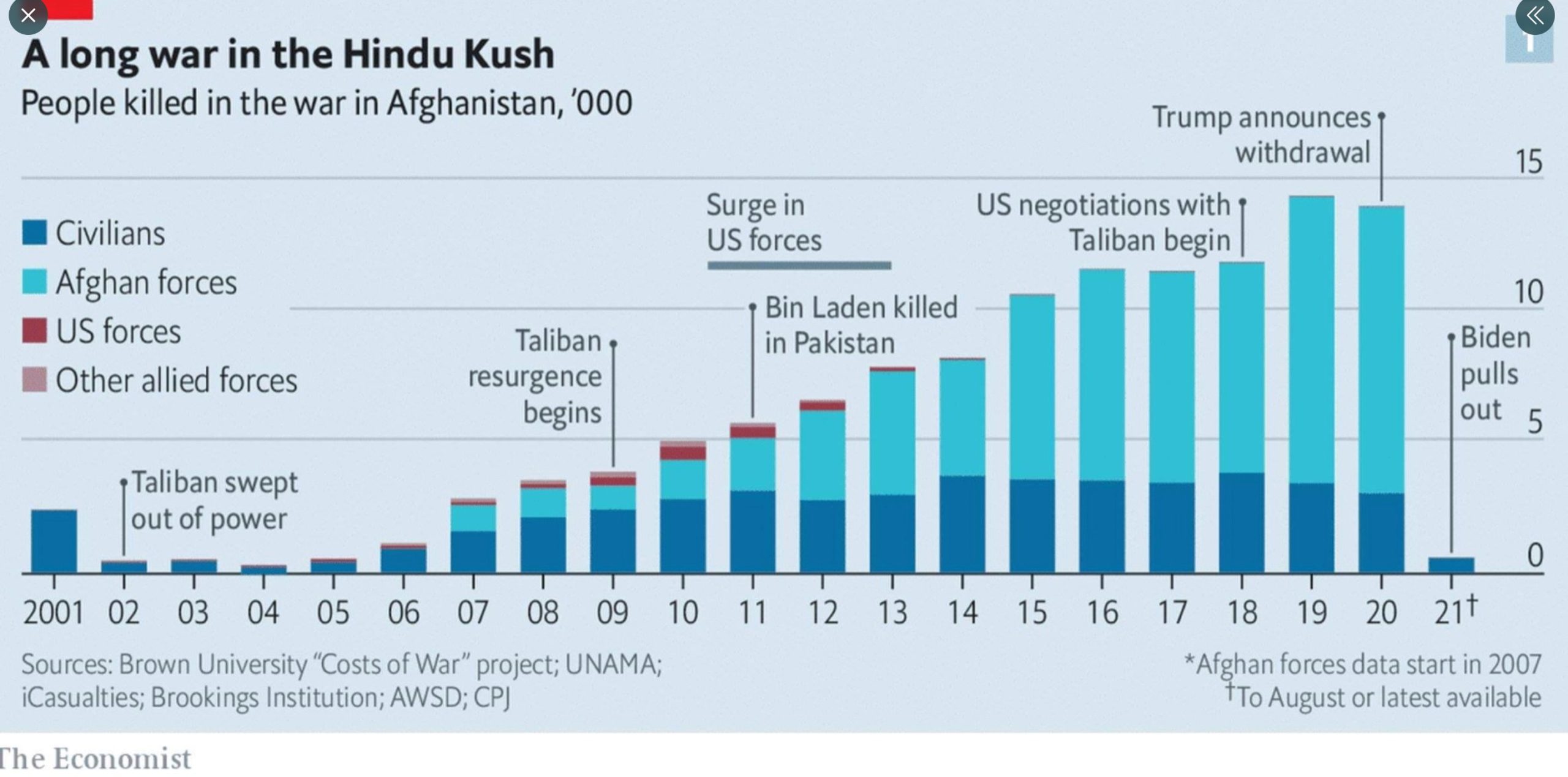I forgot to mention the other week that one of my ‘must-reads’ was “Reading and Writing the Lake District” by Jeffrey Bilbro. “Erasing the Art of Our Imperfect Past” by Katherine Dalton was also very good. They’re not available on-line but if you can put your hands on a copy of Local Culture I recommend them. That noted, my lists from the past week:
Must Read/Listen
At least for my adult life, on foreign policy, our political problem has been that the parties have agreed on too much, and dissenting voices have been shut out. That has allowed too much to go unquestioned, and too many failures to go uncorrected. It is telling that it is Biden who is taking the blame for America’s defeat in Afghanistan. The consequences come for those who admit America’s foreign policy failures and try to change course, not for those who instigate or perpetuate them… The tragedy of humanitarian intervention as a foreign policy philosophy is that it binds our compassion to our delusions of military mastery. We awaken to the suffering of others when we fear those who rule them or hide among them, and in this way our desire for security finds union with our desire for decency. Or we awaken to the suffering of others when they face a massacre of such immediacy that we are forced to confront our passivity and to ask what inaction would mean for our souls and self-image. In both cases, we awaken with a gun in our hands, or perhaps we awaken because we have a gun in our hands.
- Robert Wright in conversation with Ezra Klein, The Foreign Policy Conversation Washington Doesn’t Want to Have
KLEIN: I want to draw this out to a principal about the way we talk about foreign policy here, which is that the American foreign policy conversation, the establishment that drives that conversation — it focuses very intensely on the harms caused by our absence, our inaction, or our withdrawal, but there is no similar culpability or reckoning for the harms we directly commit or that our presence creates. And so if you’re only ever looking at one side of the ledger, then, of course, you’re going to be biased towards action… Look at the intense moral fervor we get into when we think about the harms that could be triggered by our withdrawal from Afghanistan. And I don’t want to say they’re not real… [but] where is the conversation about the harms that our continued occupation of Afghanistan have visited upon those people, as opposed to simply the harms that our absence might lead to?
- Jeet Heer, Lies About Afghanistan
A useful chart created by The Economist based on data from UNAMA other sources makes clear that far enjoying “an affordable status quo” Afghanistan was wracked [in recent years] by endemic violence.

Worth Your Time
- Jim Lobe, Three major networks devoted a full five minutes to Afghanistan in 2020
- Joseph Trevithick, What The Civil Reserve Air Fleet Is And Why It’s Been Activated For The Third Time In 70 Years
- Eli Rabett, The Foote Effect
- Ed.: Bill Burr is pretty good. From 2016…
Added to my reading list
- Umberto Eco, Ur-Fascism [Ed.: Pretty sure I read it at the time but it’s been long enough that I don’t recall the details.]
Ending on a Positive Note
- Deborah Fallows, Bucksport Maine Finds Its Heart & Soul [Ed.: We’ve always turned right. We’ll see about turning left next time.]
